Traveling across East Africa by road is an exciting way to explore the region’s breathtaking landscapes, diverse cultures, and abundant wildlife. But for travelers renting a car in one country—like Rwanda, Uganda, Kenya, or Tanzania—and planning to drive across borders, several challenges can arise. From paperwork to insurance and vehicle regulations, it’s essential to be prepared.
This guide explores the common obstacles of cross-border car hire in East Africa and provides practical solutions to help you navigate them smoothly.
Understanding Cross-Border Car Rental Basics
Renting a vehicle for cross-border travel requires more than just a valid driver’s license and passport. Most rental companies require special permissions, additional fees, and compliance with varying national policies.
Before planning your itinerary, ask:
- Does the rental company allow cross-border trips?
- What documentation is required?
- Are there additional charges or insurance needs?
- How are border delays or customs handled?
Many travelers assume driving between neighboring countries is easy because of geographic proximity. However, each country enforces its own vehicle entry policies, insurance requirements, and security clearances.
Common Challenges When Renting for Cross-Border Travel
1. Limited Provider Approval
Most local rental agencies do not automatically allow cross-border use. You must pre-arrange cross-border permissions, which are often documented on paper and must be presented at immigration/customs posts.
Solution:
Choose a rental company with regional partnerships or multi-country coverage. Ensure they can prepare border documents in advance.
2. Additional Costs and Border Permit Fees
Expect extra costs such as:
- Temporary vehicle entry permits
- Insurance extensions (COMESA Yellow Card)
- Cross-border clearance fees
Each country has its own fee structure and permit types, and charges may not be included in the initial rental quote.
Solution:
Ask for a full breakdown of costs before confirming your rental. Verify if the rental fee includes:
- Third-party insurance extension across borders
- Breakdown service coverage outside the base country
- Any customs charges or escort requirements
3. Insurance Limitations Across Borders
While most cars are insured locally, coverage does not automatically extend into neighboring countries. Without proper third-party insurance, you may face penalties or detainment at the border.
Solution:
Request a COMESA Yellow Card, a regional insurance document valid in many East African countries. This card simplifies cross-border travel and provides liability coverage in countries like:
- Uganda
- Kenya
- Tanzania
- Rwanda
- Burundi
- DR Congo
- South Sudan (sometimes by special arrangement)
4. Vehicle Registration & Ownership Concerns
Border agents often scrutinize vehicle documents. If the car is registered to the rental agency or someone else, you need:
- A stamped and signed authorization letter
- The car’s logbook copy
- Border clearance forms (often handled by the rental company)
Solution:
Ensure all original documents or certified copies are included in your travel pack, and ask your rental agency to issue a “To Whom It May Concern” letter stating permission to drive abroad.
5. Navigation & Road Conditions
Not all East African roads are created equal. Some borders have poor infrastructure, no signage, or remote locations. A GPS may be unreliable without offline maps or a local SIM card.
Solution:
Carry physical road maps or download offline GPS data using apps like Maps.me. Also, confirm which border posts are best for your itinerary, as some are commercial-only or closed on weekends.
6. Mechanical Support & Emergency Response
If your car breaks down in another country, local towing or mechanical services may refuse to assist without the owner’s consent.
Solution:
Work with a rental provider offering 24/7 regional roadside assistance and cross-border repair agreements. Carry a direct emergency line to your rental provider.
7. Language Barriers & Customs Delays
Crossing into Francophone or Swahili-speaking regions may cause misunderstandings if you’re unfamiliar with the local language. Additionally, customs agents can delay clearance if forms are incomplete or unclear.
Solution:
Ask your rental provider to translate key documents into local languages. Learn a few basic Swahili or French phrases, or use a translation app. Also, arrive early at border points to avoid delays, especially on weekends.
Best Practices for Cross-Border Car Rentals
To ensure smooth travel:
- Book with a company experienced in cross-border hires
- Get everything in writing: permissions, fees, insurance coverage
- Travel with a valid national driver’s license + International Driving Permit
- Double-check entry requirements for travelers (visas) AND for vehicles
- Consider 4×4 vehicles for rural or national park routes
Recommended Border Posts for Cross-Border Travel
- Rwanda–Uganda: Gatuna / Cyanika (well-paved, busy but efficient)
- Rwanda–Tanzania: Rusumo (important for safari travel, be patient)
- Uganda–Kenya: Malaba / Busia (commercial, allow time)
- Kenya–Tanzania: Namanga (popular for Arusha/Nairobi travel)
- Tanzania–Rwanda: Rusumo (border staff used to tourist traffic)
Always check border operating hours in advance, as some close early or may operate differently during public holidays.

Is Cross-Border Rental in East Africa Worth It?
Absolutely. While it comes with its set of challenges, cross-border car rental gives you the ultimate freedom to explore East Africa’s hidden gems at your pace—from gorilla trekking in Rwanda to safaris in Serengeti, to rafting on the Nile.
The key lies in preparation. Partner with a trusted rental agency, clarify requirements in advance, and travel confidently across some of the most rewarding landscapes on the continent.
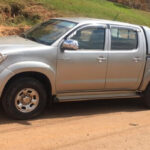
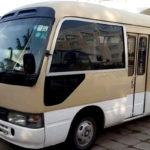
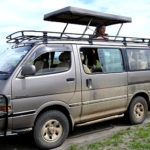
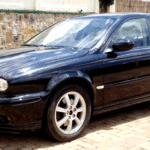
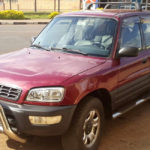
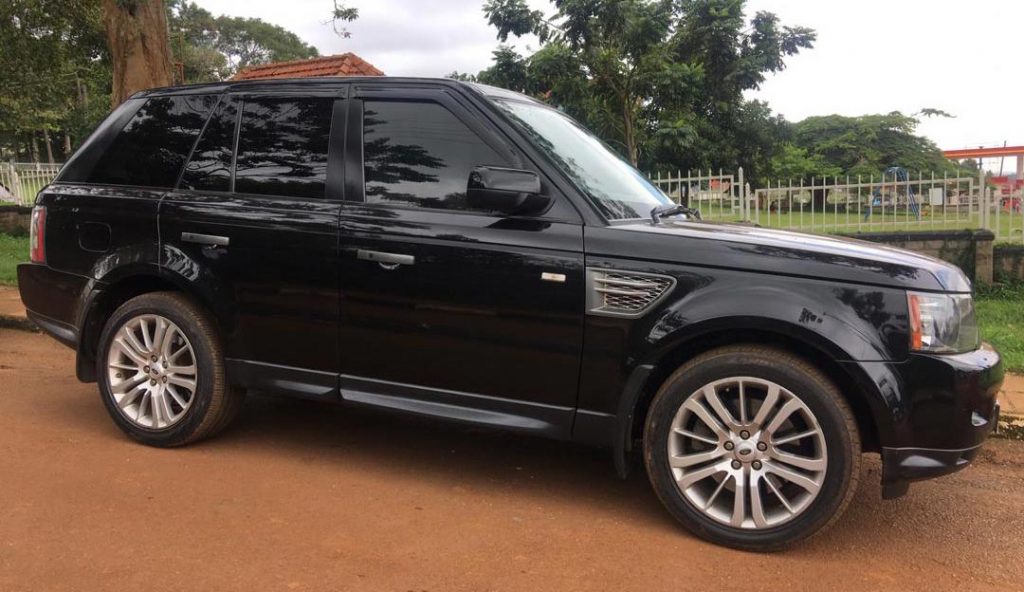
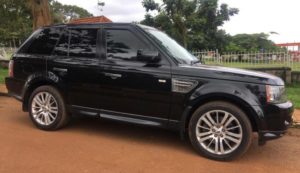

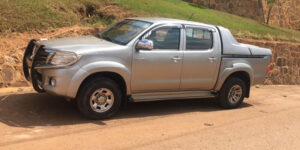

More Stories
Ultimate Guide to Monthly and Long-Term Car Hire in Rwanda
Best Car Rental in Rwanda: Solo Traveler’s Complete Safety Guide
How to Rent a Car at Rwanda Airport: Complete 2025 Travel Guide